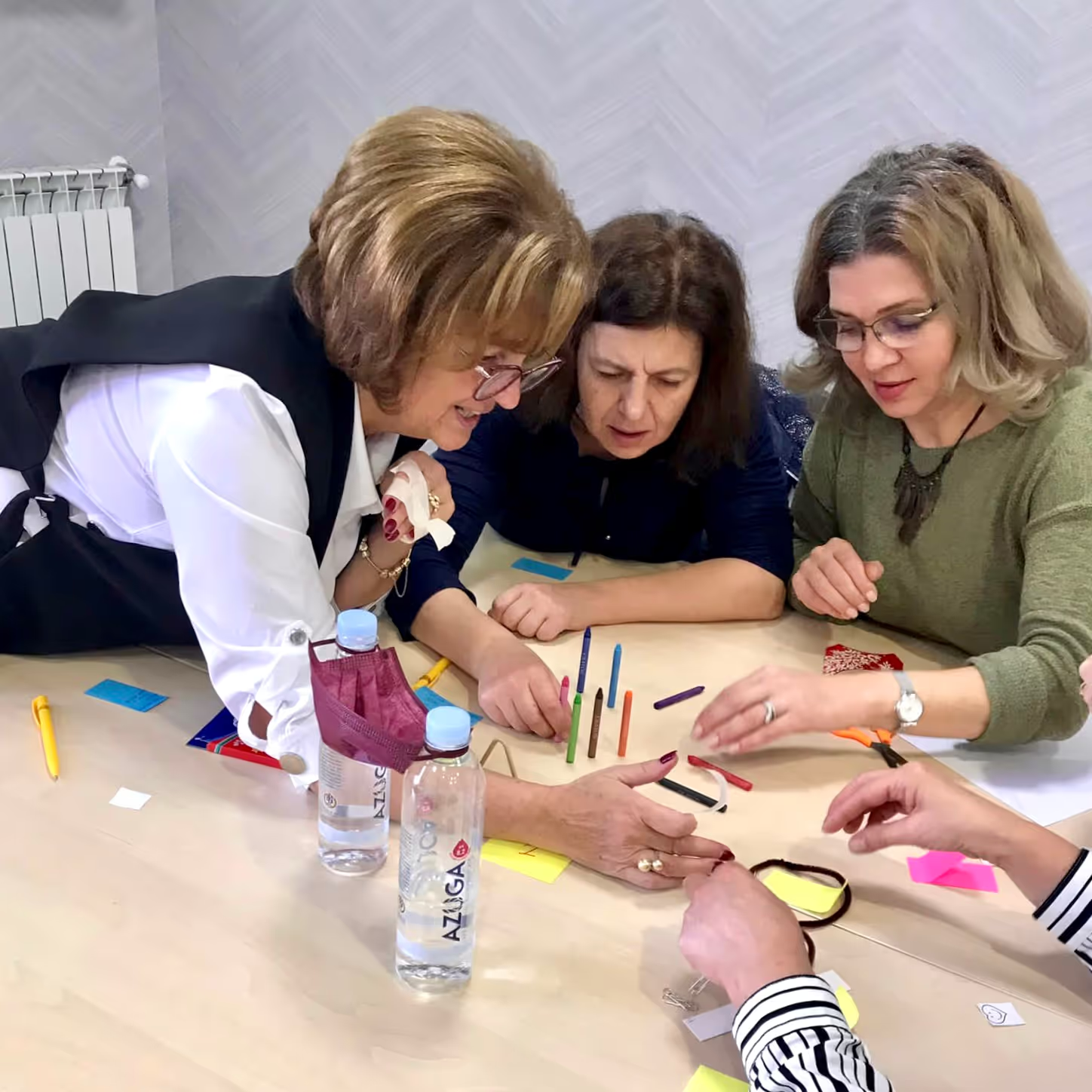Twelve training sessions in Psychological First Aid (PFA) for 450 early childhood development practitioners were organized and delivered by the Centrul Step by Step in Romania. Preschool educators and primary education teachers who are working with refugee children from Ukraine took part in these trainings. The most difficulties they faced was while working with children who have been through traumatic situations. Another challenge was lack of in-depth knowledge of Ukrainian culture and traditions.
Besides, professionals need to know as many methods and techniques of supporting children as possible to integrate in a totally different and unfamiliar environment compared to the one they were used to.
The PFA training was developed by ISSA, War Child Holland and Amna in early summer 2022 and has three main blocks: key concepts and guiding principles for psychological first aid; working with distressed children and caregivers; and managing stress in professionals. Thus, the course provides tools for working with children who might have experienced trauma, for creating safe spaces where children and caregivers can feel comfortable, valued and respected, for overcoming language barriers and recognising multiple identities, but also for creating a state of well-being and managing stress for professionals.
“The approach to trauma is widely followed in the PFA training course from theoretical details and clear explanations for understanding the concept to concrete examples and distinct ways of approaching children who show varying intensities of distress or trauma. Thanks to the training practitioners feel more confident and can act more effectively and timely to support refugee children and families in integrating into the new environment. They can more easily recognise signs of distress and trauma, identify the needs of children and families and create a climate of safety and support,” shares Roxana Avram, Centrul Step by Step program coordinator.
The PFA training also has a strong impact on the Ukrainian mothers, educators and assistant educators who work in kindergartens. For example, because of the PFA training, in the city of Tulcea, one of the educators in the group of Ukrainian children became more aware of and overcame her own trauma to later help the children with whom she works. The exercises and the information were adapted and used with the children in the group, all contributing to the psychological well-being of the members of the group. If at the beginning children did not communicate and did not play with each other in the kindergarten, they gradually gained trust in the teachers and found a safe and welcoming environment.
Main lessons and challenges from the PFA training in Romania
While rolling-out trainings such as this can be a challenging undertaking, Roxana Avram shares some essential tips.
- It is important to take care of ourselves so that we can take care of others.
- Positive feedback (praise, appreciation, value of learners) is very motivating for learning.
- Feedback is very valuable for adults, not just for children, and positive feedback supports trainee’s engagement.
- It is important to listen more to situations and to look for connections rather than solutions with the help of the team.
- It is needed to be more receptive to colleagues sharing their experiences and to pay attention to certain words or experiences that can generate strong emotions in the trainees.
- It is useful to pay more attention to the well-being of the children, of ourselves and of the team where we work.
- It is important to create a good team with fellow trainers, in a relatively short time.
- It is good to have new methods and means of organizing training activities in the synchronous online framework – e.g., work on collaborative documents.
- There should be elements of management and activation of groups of professional adults involved in training activities.
- It is good to have access to examples of good practices in adult training.
- It is important to capitalize on the knowledge, feelings and experience of the trainees to discuss the contents proposed by the training.
- Regardless of age, people want to learn new things.




